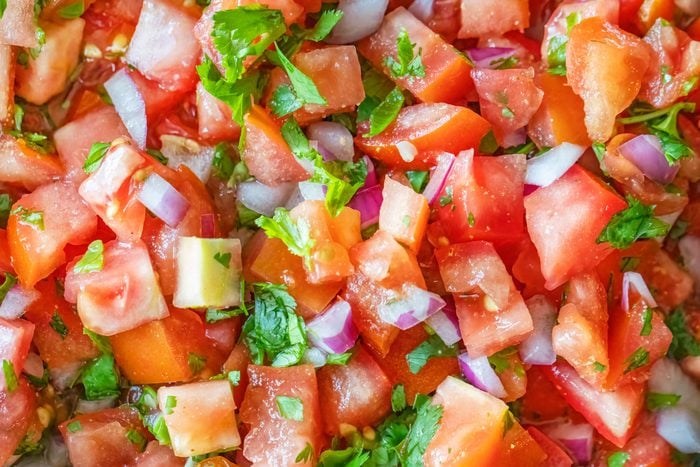
Heart palpitations can be a sensation that feels like your heart is taking a leap, fluttering, or picking up the pace, and these palpitations are more common than you might think. The Cleveland Clinic notes that heart palpitations are far from rare, noting a study indicating that about 16% of patients seek their primary care provider’s help for palpitations, making it a frequent reason to consult a cardiologist. For many, these sensations are brief and harmless, but for some, they linger as a more worrying sign.
Elizabeth Klodas, MD, FACC, a Mayo Clinic-trained cardiologist near Minneapolis, MN, says, “Palpitations are typically felt in the chest but can also be felt in the neck, and typically last seconds to minutes at a time.” She reassures that, in most cases, these symptoms are harmless, but she cautions that they could signal more serious heart issues in some individuals.
Many factors can set off heart palpitations, from stress and anxiety to lack of sleep and hormonal changes—and, yes, your diet. The food you eat plays a pivotal role in how your heart behaves. Your dietary choices can directly influence your heart’s rhythm, whether it’s an infrequently missed beat or a more constant fluttering. In either case, experts like Dr. Klodas suggest there are foods you should avoid with heart palpitations.
As we explore the foods to avoid with heart palpitations, remember that this guidance primarily targets benign palpitations. If your palpitations are new, getting worse, prolonged, or if they come with chest pain, shortness of breath, dizziness, or fainting spells, we recommend you seek medical advice.

Foods to avoid if you have heart palpitations
1. Alcohol
Indulging in a glass of wine or a cold beer might seem like a relaxing end to your day, but for those with heart palpitations, alcohol could be a trigger worth avoiding. “Alcohol is a stimulant,” explains Dr. Klodas, who is also the founder and chief medical officer of Step One Foods. “Stimulants increase the risk of palpitations by activating the sympathetic nervous system. This causes heart rate and blood pressure to go up, which can then lead to increased likelihood of palpitations occurring.”
That’s not all. Alcohol has a diuretic effect, which means it can lead to dehydration. When you’re not hydrated adequately, the risk of palpitations climbs even higher.
For those who frequently experience these unsettling heart sensations, moderation is key. “In general, patients with palpitations should limit or even avoid alcoholic beverages,” Dr. Klodas advises.
This Is the Worst Alcohol for High Blood Pressure, According to Cardiologists
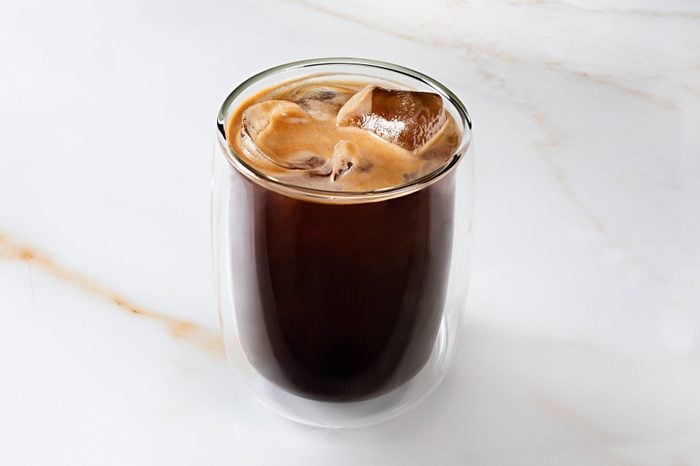
2. Caffeine
Caffeine is another stimulant to watch out for. “Just like alcohol, caffeine is a stimulant,” Dr. Klodas says. But caffeine isn’t just in your morning cup of coffee or energy drinks—it’s also present in many teas, sodas, and even chocolate.
For those who experience heart palpitations, Dr. Klodas advises caution with these caffeine-containing products. “If you are prone to palpitations, it’s a good idea to avoid or at least limit these items as well,” she suggests.
This advice isn’t just about managing palpitations, as avoiding energy drinks and sodas is a healthy choice overall. Dr. Klodas notes that many of these caffeinated beverages “contain few if any health-promoting ingredients,” making them less than ideal for your overall health and well-being.
How Much Caffeine Is In Coffee? Cleveland Clinic Experts Explain
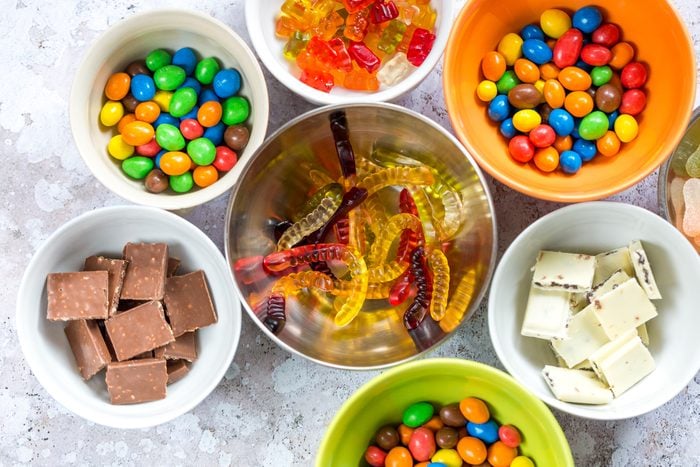
3. Processed foods
When it comes to managing heart palpitations, what you eat is also important. Processed foods are a major category to be cautious about.
Dr. Klodas sheds light on why these foods can be problematic. “Processed foods such as chips, candy, mass-produced baked goods, and microwavable snacks typically contain added sugars, unhealthy fats, and salt,” she explains. These ingredients are not only detrimental to overall heart health, but they also play a role in exacerbating heart palpitations.
The impact of processed foods goes beyond just the palpitations themselves. Dr. Klodas points out that these foods can worsen cholesterol levels and blood pressure control and cause blood sugar surges and crashes. Each of these factors can increase the risk of heart palpitations.
The 3 Foods This Cardiologist NEVER Eats—and 5 Foods He Eats Every Day
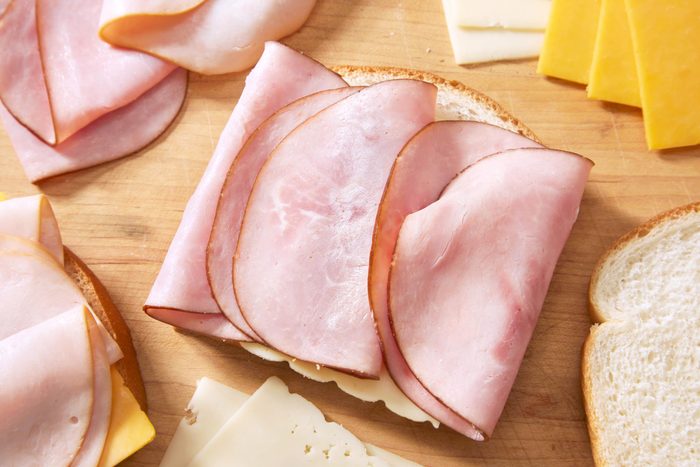
4. Deli meats
Dr. Klodas advises particular caution with these foods. “High in sodium, nitrates, and often MSG, deli meats such as ham, bacon, and sausage are smart to leave out of your diet,” she states.
Lunchmeat also have an impact on those with high blood pressure, “as they can be a significant contributor to the sodium content of your diet,” Dr. Klodas says. Given that excessive sodium intake can exacerbate heart palpitations, steering clear of deli meats becomes even more crucial for maintaining a healthy heart rhythm.
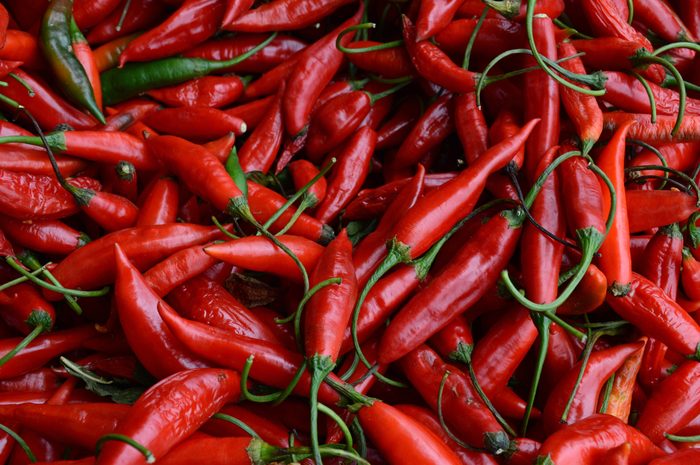
5. Spicy foods
While spices themselves can be beneficial due to their high antioxidant levels, the intense heat in some spicy foods calls for attention, especially for those prone to heart palpitations. “Eating very spicy foods can cause various physiological responses that lead to increased heart rates,” Dr. Klodas explains. This spike in heart rate can increase the likelihood of experiencing heart palpitations.
However, it’s important to note that she isn’t advocating for completely avoiding all spices: “Spices, in general, are beneficial in that they usually contain high levels of antioxidants, so avoiding all spices is not necessary.”
This Nightly Habit Could Reduce Your Risk of Heart Disease, Says New Study
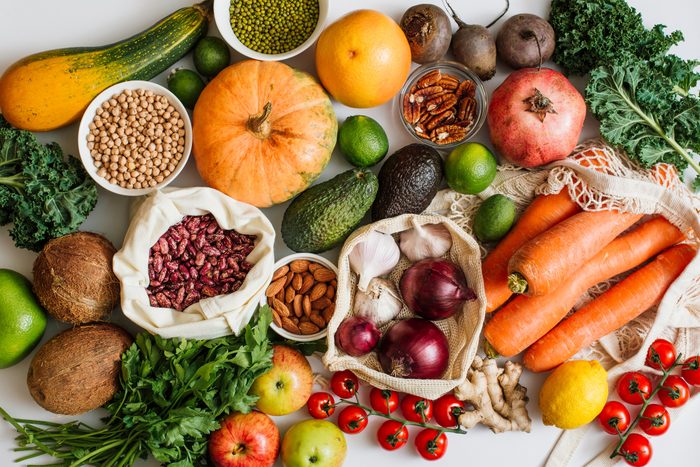
Foods to eat if you have heart palpitations
While we’ve discussed what to avoid for heart palpitations, knowing what foods to eat can be equally important. Dr. Klodas and Julia Zumpano, RD, a registered dietitian specializing in preventive cardiology from the Cleveland Clinic Center for Human Nutrition, list the best food choices for a reliable heart rhythm.
Nutrient-rich whole foods
“Think fruits, vegetables, legumes, nuts, and seeds,” Dr. Klodas advises. Foods like spinach, almonds, and avocados are rich in magnesium, while bananas, tomatoes, and sweet potatoes are excellent sources of potassium. “Increasing your intake of any foods that fall into these categories can make a big difference,” Dr. Klodas notes.
Zumpano echoes these sentiments, advising a focus on whole foods low in sugar and salt, and staying hydrated throughout the day.
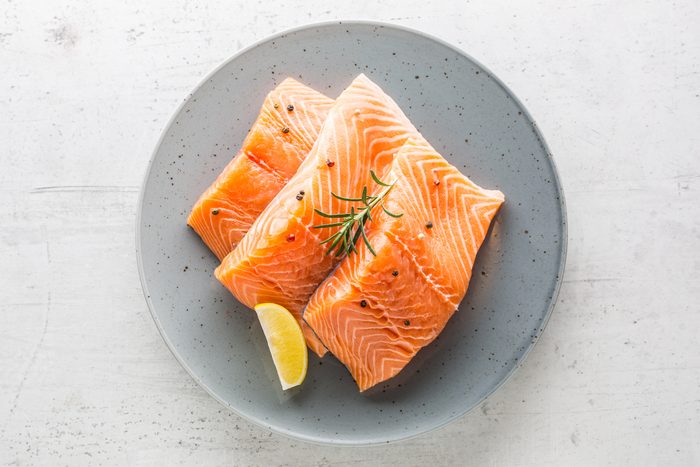
Omega-3 fatty acids
Omega-3 fats are essential for heart health, with properties that calm heart rhythms, lower blood pressure, and thin the blood. Dr. Klodas recommends incorporating omega-3-rich foods like fatty fish, flax seeds, chia seeds, and walnuts.
This Zero-Calorie Sweetener Was Just Linked to Heart Attack and Stroke
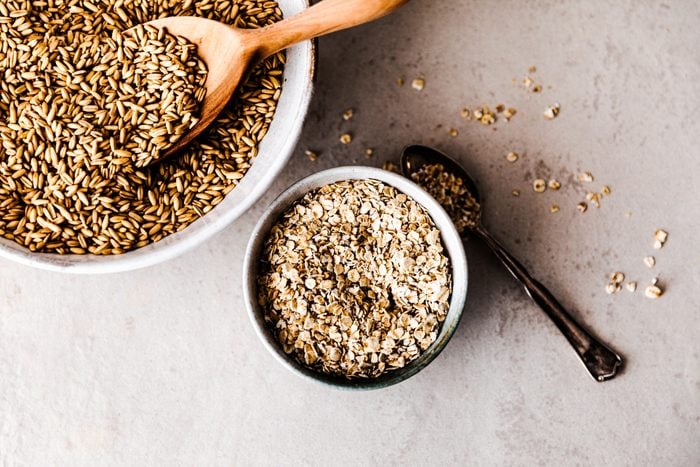
Complex carbohydrates
Complex carbohydrates are a wise choice for those with heart palpitations. Unprocessed whole grains like oats, farro, bulgur, quinoa, and brown rice provide essential minerals and fiber. They digest slowly, helping to avoid sugar surges and crashes.
“Reducing palpitations may be your motivation to make these dietary changes, but know that you will be affecting many other aspects of your health beneficially,” Dr. Klodas adds, citing a 2022 study from the Mayo Clinic and the University of Manitoba that showed “getting more fiber, healthy fats, and antioxidants through two snacks a day can significantly lower LDL (bad) cholesterol in as little as 30 days.”
For the latest health research and answers to common health curiosities delivered to you daily, get The Healthy @Reader’s Digest newsletter and follow The Healthy on Facebook and Instagram. Keep reading:

